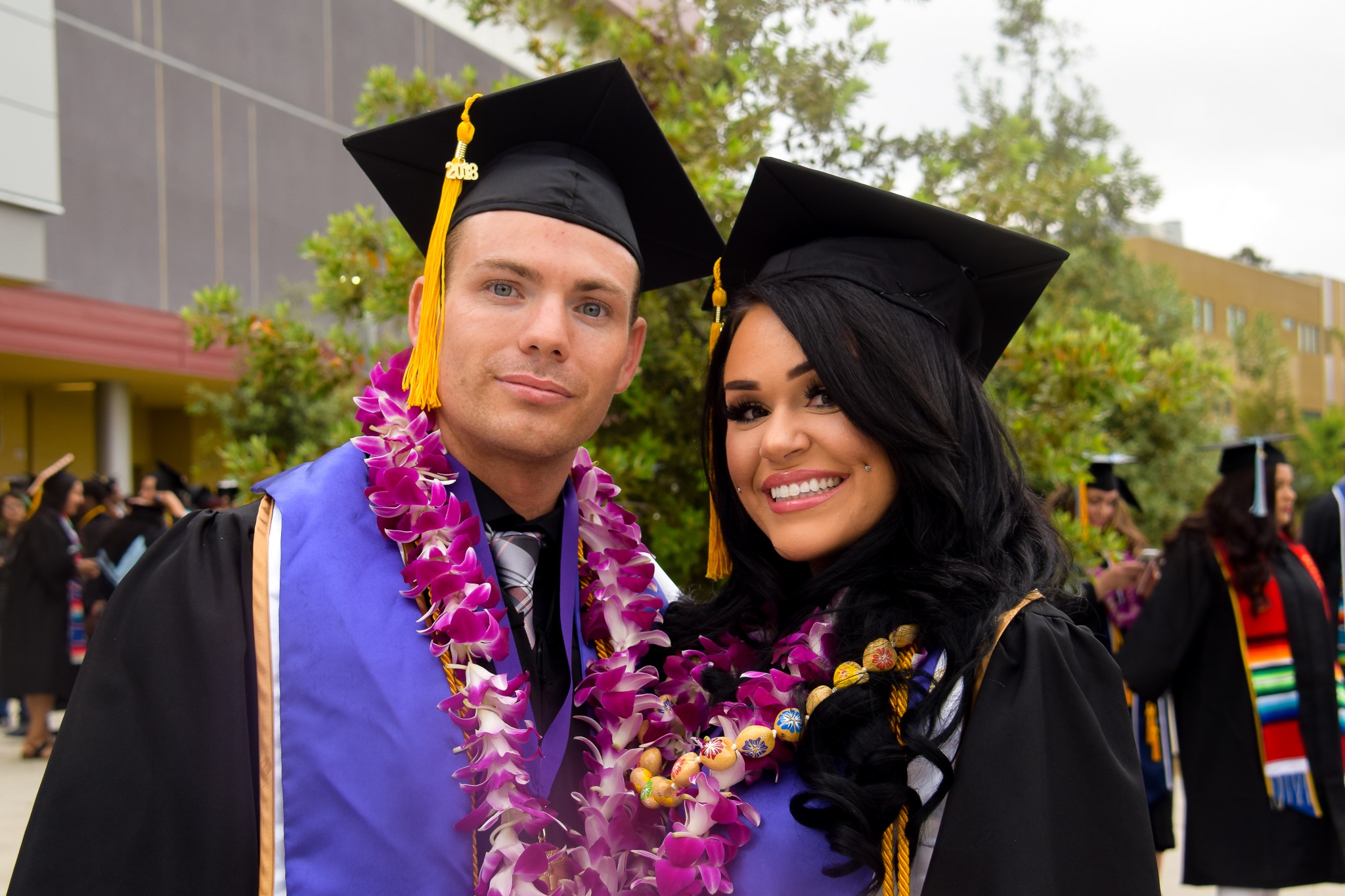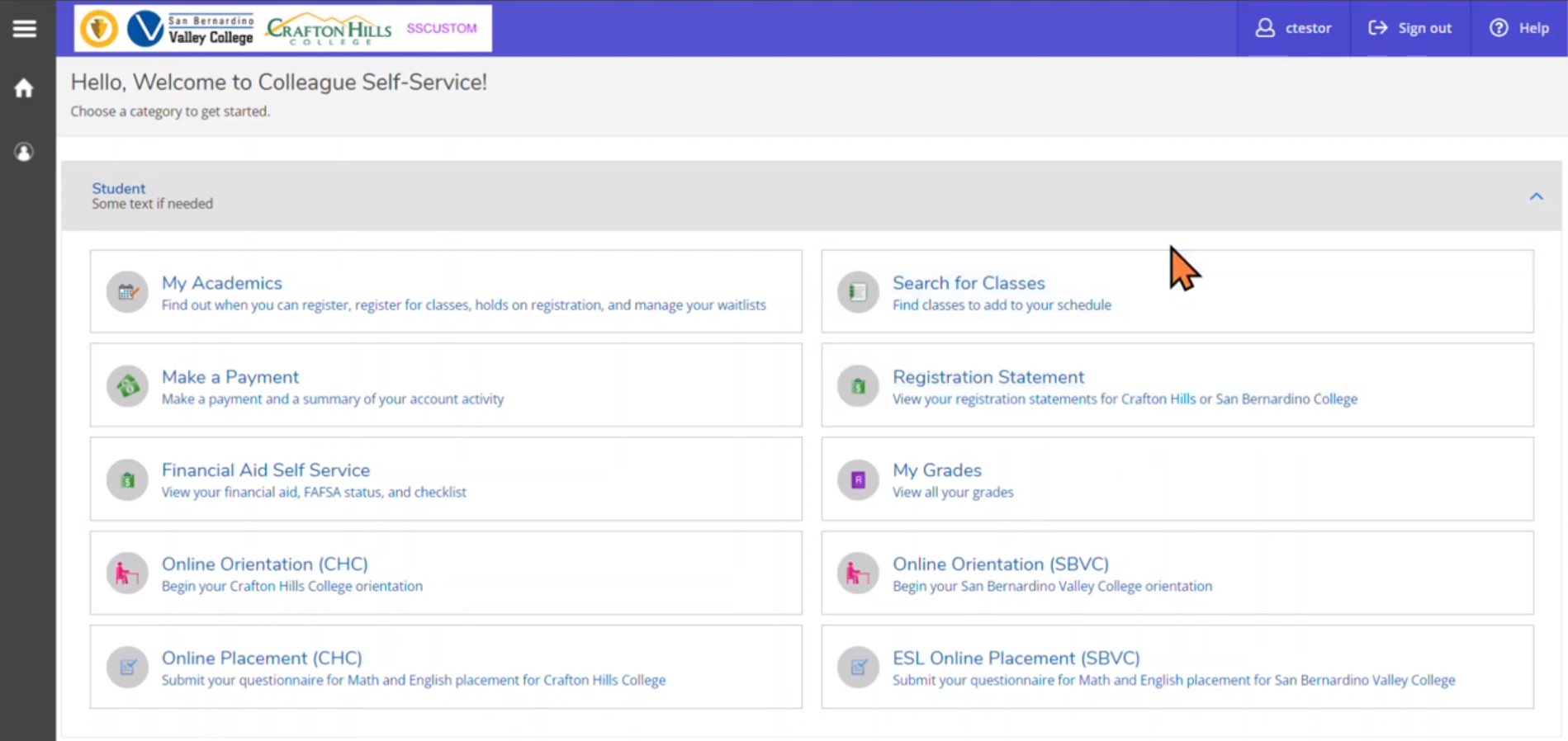Wolverine Spotlight: Spencer Layman
 When Spencer Layman first started down the path of addiction, life was all about survival.
He dropped out of school at 12 years old, left home with his two older brothers, who
within six months were serving long prison terms.
When Spencer Layman first started down the path of addiction, life was all about survival.
He dropped out of school at 12 years old, left home with his two older brothers, who
within six months were serving long prison terms.
He was on the streets to fend for himself.
“[Drugs] was a way for me to put money in my pocket, have clean clothes, and eat every
day, it was the way of supporting myself,” he said.
From age 15, Layman recycled through county jails and prisons for ten years. He tried
restarting his life, hitting roadblocks at every turn because of his formerly incarcerated
status. Eventually, he checked himself into rehabilitation, and started attending
San Bernardino Valley College.
Getting back to the real world was also painstaking, at least at first. He remembers
nearing the bus stop on his first day of class as one of his worst days. His hands
were shaking, he was dripping with sweat. He was going to a place where all the other
students were doing big things. They had goals.
“I felt like an outcast. It was nerve-wracking,” he said. “People think it's funny.
They're like, were you scared to go to prison? No, because I was so institutionalized.
It was normal for me."
Hood pulled deep over his head, he took his seat at the back of the class. He thought
everyone knew his past, and privately told his teacher that he was extremely anxious
because hadn't been in school since he was 12 years old. She assured him everything
was fine. “She was like, 'Don't worry about it, if you wouldn't have said you just
got out of prison, I wouldn't have known," said Layman, who graduated from San Bernardino
Valley College last year. "I thought I had it written across my forehead, but that
was just my perception."
Human Services Department Faculty Chair Melinda Moneymaker helped him get past the
fear. Today, Layman is a substance abuse counselor, helping other formerly incarcerated
students surmount similar obstacles and insecurities to re-entry.
Some of the impetus to get on the right track was his need to make amends to all those
he had hurt along the way. “What better way than helping other addicts? That's what
made me want to become a drug and alcohol counselor and go back to school,” he said.
He said Prof. Moneymaker connected him to the Human Services Club. From there, he
served a stint as president of grassroot advocates All of Us or None, then became
a student senator that led to crafting his successful resolution to start a formerly
incarcerated community center.
One personal mandate is to never forget where he has come from. He works with Project
Rebound, which sends the formerly incarcerated his way so he can help them meet the
criteria for that program. He is concerned that many formerly incarcerated don't realize
they qualify for financial aid. He sits down with them, helps them navigate registration,
picks classes, and figure out their goals in life.
As Layman moves up the career ladder, he is juggling several projects, and making
good use of time management skills. He is buying his first home, preparing to open
and manage a new residential treatment house through his current employment. He attributes
everything to lessons learned from San Bernardino Valley College.
“With all the classes here, my documentation and my interaction with the clients rose
me through the ranks,” he said. “They offered positions that I've never even dreamed
of.”


